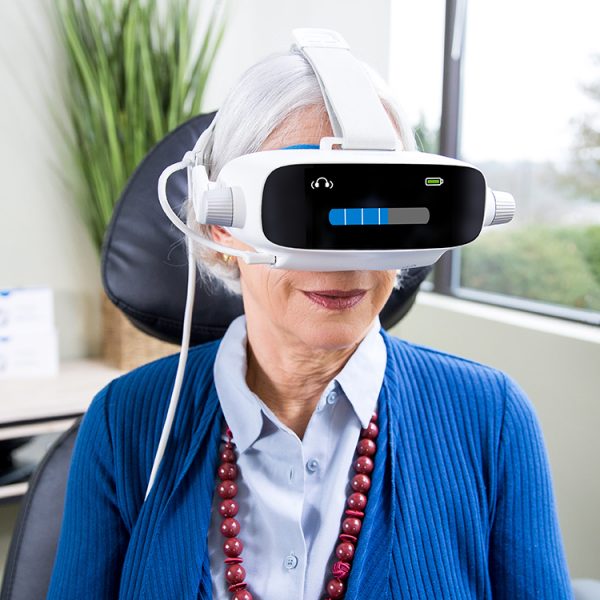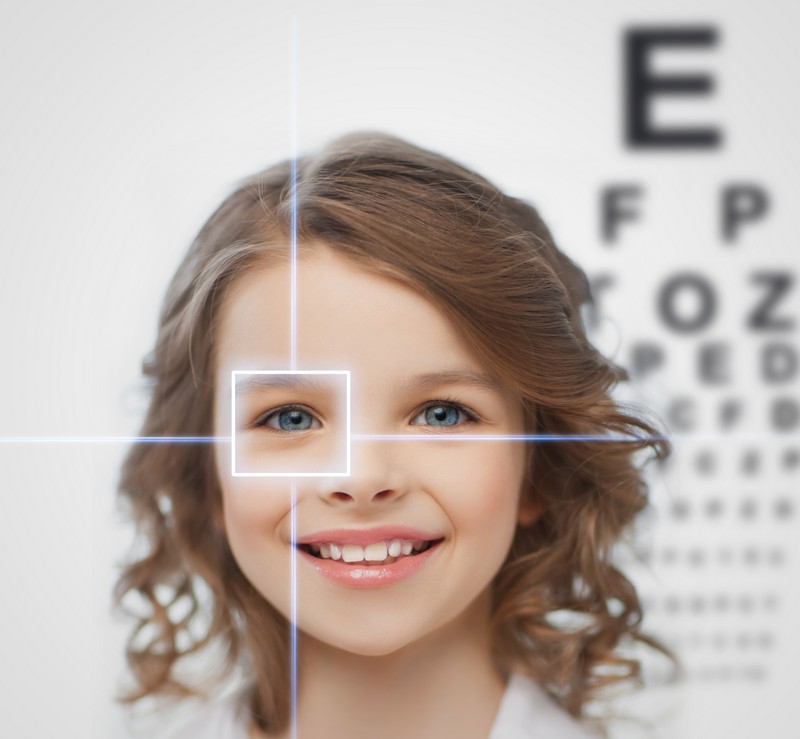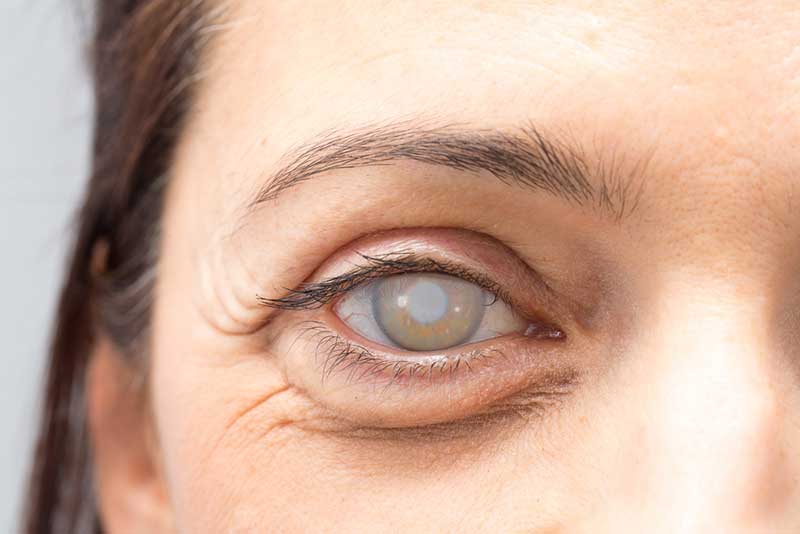
We truly believe in routine eye examinations so that you can see as clearly as possible. Once you have to get glasses or contacts, it is even more important to watch the health of your eyes. You also need routine checks to ensure your prescription has not changed.
To ensure good eye health and vision, we are very proud to offer the following services:
- AdaptDx Pro®
- Comprehensive Eye Exams
- Contact Lenses
- Hard To Fit Contact Lenses
- Macular Degeneration
- Cataracts
- Glaucoma
- Computer Vision
- Hyperopia
- Myopia Control
- Diabetic Eye Care
- Surgery Co-Management
- Dry Eye Treatment
- Sports Vision Training
- Reading and Learning Disabilities
- Special Needs
- Dyslexia
- Concussions
- ADD and ADHD
- Neuro-Optometric Rehabilitation

AdaptDx Pro®
AdaptDx Pro® delivers objective results with a non-invasive assessment that’s easy to administer. AdaptDx is not only much faster than older methods but also more sensitive and specific.
The AdaptDx Pro® can help detect AMD at its earliest stages and before visual acuity is impacted. The AdaptDx Pro® has proven to be 90% sensitive and 90% specific for the presence of AMD.

Comprehensive Eye Exams
On average, we recommend scheduling an appointment once every two years to ensure your eyes are remaining healthy. If you have been diagnosed with an eye condition, however, we recommend scheduling an appointment once or twice a year depending on the severity.
During your appointment, we will review your patient history, visual acuity, perform preliminary tests, and evaluate your eyes’ overall health.

Contact Lenses
Nowadays, most people prefer to wear contacts instead of glasses. If you are interested in contact lenses, please let your eye doctor know prior to your appointment. During your exam, we will discuss the various contact lenses available and determine the best option based on your individual needs and lifestyle.

Hard To Fit Contact Lenses
Do you find wearing contact lenses impossible? Are your regular contacts painful or constantly uncomfortable? You are not alone. Due to a variety of factors such as individual eye shape, specific conditions, impairments, or the aftermath of surgery, some patients are considered to have more difficulty wearing contacts than others.

Macular Degeneration
Macular degeneration is a deterioration of the central portion of the retina, the inside layer of the eye that records the images we see and sends them through the optic nerve from the eye to the brain for processing. The macula, or the center of the retina, is responsible for focusing central vision in the eye and controls our ability to see and process information.

Cataracts
Cataracts cause a clouding of the lens in the eye, making your vision appear to be foggy. Cataracts are the most common cause of vision loss in people over 40 and are the leading cause of blindness in the world.
Your eyes are meant to naturally adjust to normal light changes, adjust focus, and allow us to see both near and far. Your lens is primarily made up of water and proteins. The proper arrangement of these proteins is what contributes to normal vision. Some of these proteins clump together forming a clouding of the lens.

Glaucoma
Glaucoma occurs from damage to the eye’s optic nerve and can often lead to loss of vision and blindness. To detect glaucoma, our highly trained doctors will perform a proper screening to determine severity, examine the damage, and help you manage your glaucoma.
Early detection of glaucoma is crucial in preventing vision loss and blindness; the earlier the better. However, there is no official cure for glaucoma. There are several treatment methods that manage, slow down, or halt the process. Treatment for glaucoma will vary depending on the stage and severity for each individual patient.

Computer Vision
Computer Vision is a relatively new term within the optometry field and refers to eye problems associated with the prolonged use of computers and electronics that utilize a digital screen. Although it can be temporary, there are times when computer vision can strain the eyes to a degree that permanently affects your vision as well. An existing eye condition can worsen as the eyes try to focus and adjust to a computer screen, and precautions should be taken if you spend long hours in front of a computer screen.
If you have been experiencing blurry vision, dry eyes, eye strain, headaches, neck or back pain, try adjusting the lighting, posture, and the distance in front of your computer screen. If computer vision symptoms persist, call us to request an appointment, we will perform a full evaluation.

Hyperopia
Farsightedness, known as hyperopia, makes it difficult to see objects close by. If you are experiencing farsightedness, corrective lenses such as glasses or contact lenses will be prescribed. After a thorough examination, we will determine the prescription that’s best for you.

Myopia Control
Nearsightedness, known as myopia, makes it difficult to see objects from afar. If you are experiencing nearsightedness, corrective lenses such as glasses or contact lenses will be prescribed. After a thorough examination, we will determine the prescription that’s best for you.

Diabetic Eye Care
Diabetes can affect more than just your blood sugar. It can also do some damage to your eyes if you are not careful.
Diabetic eye disease can cause vision loss if you are not careful. It can cause you to have trouble with everyday tasks even if you have regular glasses or contacts. It can even cause blindness.

Surgery Co-Management
If you are interested in laser surgery, we will begin with a comprehensive eye examination, which will let us know more about you and your needs. We may have to perform some testing to properly diagnose your eye conditions. During this time, the surgeon and staff will go over what you can expect before, during and after the procedure; we want to make sure to give you realistic answers for your unique vision.

Dry Eye Treatment
A+ Vision Optometry is proud to offer dry eye treatment for our patients. Ocular Surface Disease, also known as dry eye, can occur from certain medications, naturally by aging, or as a symptom arising from systemic diseases such as Sjogren's syndrome, Rheumatoid arthritis, or Lupus. If you have a minor case of dry eye, you may be experiencing irritation, excessive tearing, fluctuating vision, and/or a burning sensation in your eyes. Excessive dry eyes, or dry eye symptoms that go untreated, have the potential to damage eye tissue, scar your corneas, and impair your vision.

Sports Vision Training
A sports vision training program can be individualized to fit your specific needs and goals. For example, in archery it is important to know which eye is dominant so you can choose the right bow to align with the target. We will help you determine this. In many cases, it is not actually the eye that people may think.
Depending on your sport and the results of comprehensive eye testing, you may need training that will help you with skills such as anticipating the trajectory of a bouncing ball. Computer simulations can be used as training tools, including those that help batters accurately anticipate where a fastball or a curve ball will be located when it's time to take a swing.
Some sports vision specialists even use techniques such as visual imagery (visualization) to help athletes imagine themselves performing at a peak level. You may be asked to see yourself dashing across the finish line in record time or aiming your rifle in precisely the right way to hit the target. These are just a few examples of how sports vision training can be extremely beneficial to you.

Reading and Learning Disabilities
Approximately 80 percent of what children learn in school is presented to them visually. Experts say that vision and learning are closely related and good vision is vital for students to be able to reach their fullest academic potential.
When a child has difficulty in school, this could be an indicator of vision problems and should be evaluated right away.
Beyond the common problems of nearsightedness and farsightedness, there is a wealth of other visual disorders that can make the learning process more difficult. These disorders are less obvious and relate to the ways the eyes function and the ways the brain processes this visual information. Vision-related learning problems should not be confused with learning disabilities.
Some common symptoms of vision-related learning problems include headaches, eye strain, blurred or double vision, crossed eyes or eyes that move independently from each other, reading or writing close up to the face, excessive blinking or rubbing the eyes frequently, and persistent reversal of words or letters.

Special Needs
We understand that children with special medical needs have a higher incidence of visual problems. In addition to nearsightedness and farsightedness, they may have other disorders such as eye turns, eye movement dysfunction, distorted depth perception, and visual information-processing defects.
An eye exam is a critical component in the care of adults and children with special needs and we recommend working with a provider who has both a special interest and extensive training in the area.
We provide a specialized examination for patients who require modifications. The examination is tailored to the patient’s level of verbal responsiveness and ability to communicate with the doctor. We will adapt each examination to the patient’s needs.

Dyslexia
Many parents worry that if their child has dyslexia it will affect their future job or even lead to other issues. Many parents start to feel overwhelmed, especially if they are just starting to research the disease.
Many people believe that dyslexia is a sign of low intelligence, but that is just a myth. Dyslexia affects the way the brain works when a person is writing, spelling, or even speaking.
People with dyslexia have a hard time understanding large ideas. Most times they are able to understand the ideas eventually but just need additional time, which can be frustrating for them and those around them.

Concussions
Doctors see various types of concussions, some more serious than others. Though many people don’t think that they need to see us, visual problems can be a sign of a concussion.
A visionary concussion is when the visual area of the brain is affected. Most concussions that linger past a few weeks actually have a visual component associated with them. This is why it is so important to be checked out by a sports vision clinic when you first get a concussion.
Vision exercise and vision therapy can help you recover from your concussion. Here at A+ Vision Optometry, we have the best doctors to ensure that your vision returns to how it was before. It is our goal to get you back to playing sports and being active as soon as possible.

ADD and ADHD
These disorders can potentially impact anything that requires planning and coordinating, from sleeping and eating to doing long-term projects. They can even affect the way someone speaks and listens to conversations.
Many people are hyperactive, but some are more hyperactive than others. Many of these people suffer from ADD or ADHD. Currently 11% of Americans between ages 11-17 have ADD or ADHD.
Some symptoms of ADD or ADHD include trouble focusing and being easily distracted. People may struggle to follow directions and become impatient quickly. They may show emotions without restraint and be full of energy. Many are quite forgetful and struggle to focus on just one thing at a time.
If left untreated, one can experience low self-esteem, suffer from depression, or even engage in self-harming behavior. If you or a loved one suffers from ADD or ADHD, there are some easy steps you can take to reduce the effects of the disease. By getting help quickly, you will start to feel like yourself again.

Neuro-Optometric Rehabilitation
The brain is an amazing part of the body able to retain itself even after traumatic injuries. Neuro-optometry is a specific field of optometry that works to reprogram the brain’s way of processing information from our eyes. Your brain and visual system are intricately intertwined and, when functioning properly together, they allow us to interpret the world around us.
At A+ Vision Optometry, we tailor our treatment plans based on each patient’s vision conditions and needs. A combination of visual strength exercises, specialized lenses, and various vision skills tests help us to retrain your brain to process visual information properly.
